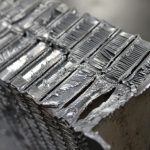Have you ever wondered how scientists and researchers get accurate results in their experiments? The answer often lies in the professional equipment they use. In medical, scientific, and industrial labs, the right tools help ensure safe, fast, and reliable results.
From testing samples to analyzing data, specialized machines and instruments play a big role. Whether it’s a hospital, research center, or factory, lab equipment supports daily work and discoveries. In this article, we’ll explore how professional laboratory tools serve many different applications in research, testing, and analysis.
Essential Tools for Medical Laboratories
Medical laboratories are key to patient care. They use special equipment to test blood, urine, and tissue samples. These tools help doctors diagnose diseases, check for infections, and monitor health conditions. Common tools include centrifuges, blood analyzers, microscopes, and pipettes.
Microscopes allow lab staff to examine tiny organisms or cells closely. Centrifuges spin samples at high speed to separate components. Blood analyzers give fast results to guide treatment. Refrigerators and freezers store samples safely for testing.
Safety is also important in these labs. Items like the biological safety cabinet protect users and samples from contamination. Medical labs also need equipment that meets strict health standards to avoid mistakes and delays.
Medical labs with proper equipment deliver fast and reliable results, helping doctors treat patients effectively. Regular maintenance is essential for accurate results. Overall, professional lab tools are vital to healthcare.
Scientific Research and Innovation Support
Scientific research labs rely on a wide range of tools to make discoveries and test new ideas. These labs often focus on biology, chemistry, or physics. To perform different types of experiments, they need high-quality and precise instruments.
Basic tools include balances, microscopes, and lab glassware. More advanced tools like spectrophotometers help measure light absorption in liquids. Thermal cyclers are used in DNA research, and incubators help grow bacteria or cells.
Each piece of equipment must be accurate and dependable. Researchers need results they can trust so they can move forward with their work. Sometimes, even a small error can affect a whole project.
Good lab tools also make work easier and safer. Fume hoods help remove harmful gases. Digital systems help track results and sample information. Specialized software can help scientists analyze complex data sets more quickly.
By using professional equipment, research labs can explore new ideas and test theories more effectively. These tools support the discovery of new medicines, materials, and technologies that can improve our daily lives.
Industrial Testing and Quality Control
In industrial labs, testing equipment plays a key role in making sure products are safe and meet standards. These labs are common in fields like food production, manufacturing, and electronics. They check raw materials and finished goods before they reach customers.
Some important tools include hardness testers, moisture analyzers, and spectrometers. These devices measure things like strength, composition, and purity. Labs also use ovens and furnaces to test how materials react to heat.
Precision is important in industrial testing. One small defect can lead to big problems, like a product recall or a safety hazard. That’s why reliable lab equipment is essential for consistent quality control.
Many industrial labs use automated tools to speed up testing, handle large sample volumes, and reduce human error. Some connect to computer systems to store and track data.
Environmental Testing and Analysis
Environmental labs focus on studying air, water, and soil. They check for pollution, chemicals, and other harmful substances. These labs support efforts to protect nature and public health. Professional tools help test samples from cities, farms, and factories.
Key equipment includes gas chromatographs, water testing kits, and soil analyzers. These tools can detect even tiny amounts of harmful chemicals. Labs also use pH meters, spectrophotometers, and portable air monitors for field testing.
Environmental labs follow strict standards for accuracy. Test results are often used by government agencies, so the equipment must be very reliable. Regular calibration is needed to keep everything working properly.
Many labs also use tools that help with clean sample handling. A biological safety cabinet, for example, can protect sensitive samples from contamination during analysis. This ensures that results are not only accurate but also trustworthy.
Environmental testing prevents worsening problems by assessing water safety and air quality. Labs with the right tools contribute to a safer, healthier world.
Educational Labs and Training Centers
Schools and universities also rely on lab equipment to teach students and train future professionals. These learning labs need durable, simple tools that still provide accurate results. They are often used in chemistry, biology, and physics classes.
Basic equipment includes beakers, test tubes, hot plates, and simple microscopes. These items help students understand how experiments work. As students advance, they might use more complex tools like centrifuges, spectrometers, or DNA kits.
Educational labs focus on safety and learning. Students are taught how to use tools properly and follow lab rules. Training with real lab equipment also prepares them for future work in professional labs.
To keep costs low, many schools choose equipment that is easy to maintain and long-lasting. Some tools are digital and connect to software, so students can analyze data just like in real research labs.
Custom Equipment for Specialized Applications
Some labs have very specific needs. For example, a pharmaceutical lab making vaccines will use different tools than a forensic lab solving crimes. Custom equipment is often designed to match the exact needs of these specialized labs.
Tools like chromatography systems, high-speed centrifuges, and automated sample processors are common in these setups. These machines are often tailored for certain processes, like drug testing or DNA matching.
Having the right custom tools allows labs to do their work faster and more safely. For example, labs that handle dangerous substances need sealed chambers or air control systems. These reduce exposure risks for lab workers.
Custom tools also help improve workflow. When a machine is built for one job, it saves time and reduces errors. These systems often work together with software for easy data sharing and control.
Choose The Best Professional Laboratory Equipment for Your Needs
Professional laboratory equipment plays a huge role in modern science, medicine, and industry. Each type of lab, whether medical, research, industrial, or educational, depends on reliable tools to get clear and accurate results. With the right equipment, labs can run more safely, work faster, and make fewer errors.
Whether it’s a microscope, a spectrometer, or a biological safety cabinet, each tool supports the larger mission of discovery, safety, and progress. As technology improves, so will the equipment, helping labs meet new challenges with confidence.
Interested in learning more? Explore our blog for more articles.

Dilawar Mughal is an accomplished author with a passion for storytelling. His works span various genres, from thrilling mysteries to heartfelt romance novels. With a keen eye for detail and a knack for character development, Sana Fatima weaves engaging narratives that captivate readers and transport them to new worlds.










